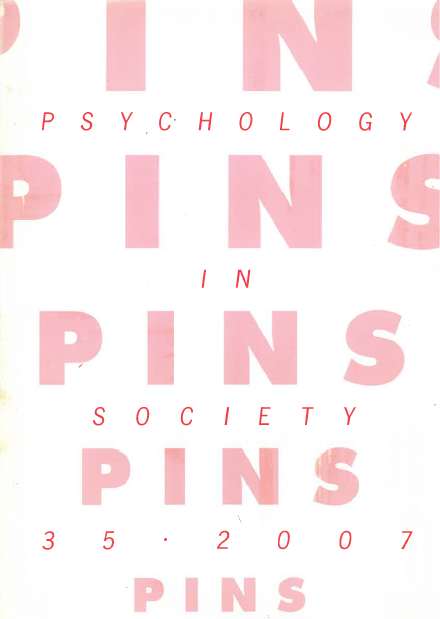THE RISK OF PHALLOCENTRISM IN MASCULINITIES STUDIES: HOW A REVISION OF THE CONCEPT OF PATRIARCHY MAY HELP
DOI:
https://doi.org/10.17159//2309-8708/2007/n35a2Keywords:
masculinities studies, masculinity, feminism, phallocentrism, patriarchyAbstract
In this article I critique South African work on masculinities through a fine grained reading of Morrell’s introductions to three texts. While this work appears, on first reading, to contribute to pro-feminist theorising, I argue that it inadvertently falls into a phallocentric trap. This is achieved in three ways: firstly, and most crudely, through conflating women and men into a singular, universal model that is in reality the masculine appearing as the universal; secondly, and more subtly, through concentrating almost exclusively on men and masculinities, thereby marginalising women (again); and thirdly, through constructing multiplicities of masculinities – this allows men to resist hegemonic masculinity, but never undo masculinity itself. In this way, the possibility of deconstructing the feminine/masculine binary recedes and the concept of patriarchy gets sidelined. I argue for a reinsertion of the notion of patriarchy into our study of gender, but also that the very notion of patriarchy needs revision in order to accommodate the multiple fissures that occur between men.
Downloads
Downloads
Published
How to Cite
Issue
Section
License
This journal is an open access journal, and the authors' and journal should be properly acknowledged, when works are cited.
Authors may use the publishers version for teaching purposes, in books, theses, dissertations, conferences and conference papers.
A copy of the authors’ publishers version may also be hosted on the following websites:
- Non-commercial personal homepage or blog.
- Institutional webpage.
- Authors Institutional Repository.
The following notice should accompany such a posting on the website: “This is an electronic version of an article published in PINS, Volume XXX, number XXX, pages XXX–XXX”, DOI. Authors should also supply a hyperlink to the original paper or indicate where the original paper (http://www.journals.ac.za/index.php/pins) may be found.
Authors publishers version, affiliated with the Stellenbosch University will be automatically deposited in the University’s’ Institutional Repository SUNScholar.
Articles as a whole, may not be re-published with another journal.
The copyright of the article(s) lies with the author(s).
The copyright of the journal lies with PINS-psychology in Society.
The following license applies:
Attribution CC BY-NC-ND 4.0 - https://creativecommons.org/licenses/by-nc-nd/4.0/

